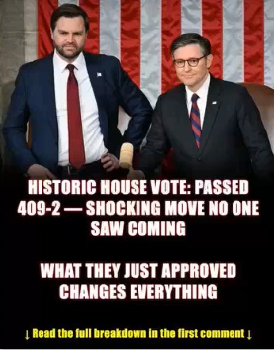
In a rare display of bipartisan unity, the U.S. House of Representatives voted 409–2 to pass the TAKE IT DOWN Act,
now signed into law. The legislation directly targets the spread of nonconsensual intimate imagery
, including AI-generated deepfakes, marking one of the most significant federal steps to combat digital exploitation.
The law makes it a federal crime to knowingly create or distribute explicit images or videos of a person without their consent,
whether real or artificial. It also places new obligations on major online platforms: starting in 2026,
they must implement systems allowing victims to quickly request removal of harmful content.
Supporters hail the measure as a turning point for online safety. Victims of image-based abuse often endure severe psychological,
social, and professional harm with few options for relief. By criminalizing these acts and creating
a removal framework, lawmakers hope to give victims back a measure of dignity and control.
Though some critics raised concerns about free speech and government overreach, bipartisan sponsors stressed that
the law carefully balances privacy rights with accountability. With broad support from Congress and the President,
the TAKE IT DOWN Act represents a milestone in protecting consent, dignity, and safety in the digital age.